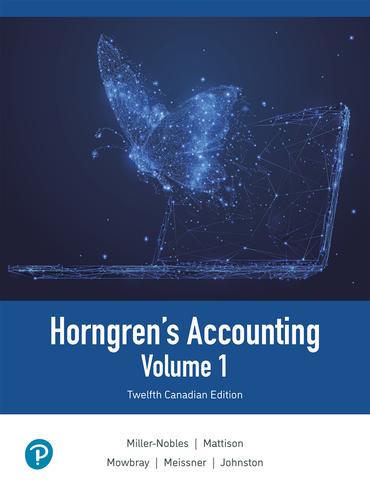Question
The following questions concern unqualified audit reports. Choose the best response. a. Which of the following statements about a combined report on the financial statements
The following questions concern unqualified audit reports. Choose the best response.
a. Which of the following statements about a combined report on the financial statements and internal control over financial reporting is correct?
(1) The auditors opinion on internal control is for the same period of time as the opinion on the financial statements.
(2) The report includes additional paragraphs for the definition and limitations of internal control.
(3) The introductory, scope, and opinion paragraphs are unchanged from a report for an audit of the financial statements only.
(4) GAAP is the framework used to evaluate internal control.
b. The date of the CPAs opinion on the financial statements of the client should be the date of the
(1) closing of the clients books. (2) finalization of the terms of the audit engagement.
(3) completion of all important audit procedures.
(4) submission of the report to the client
. c. If a principal auditor decides to refer in his or her report to the audit of another auditor, he or she is required to disclose the
(1) name of the other auditor.
(2) nature of the inquiry into the other auditors professional standing and extent of the review of the other auditors work.
(3) portion of the financial statements audited by the other auditor.
(4) reasons for being unwilling to assume responsibility for the other auditors work.
The following questions concern unqualified audit reports with an explanatory paragraph or modified wording. Choose the best response.
a. An entity changed from the straight-line method to the declining-balance method of depreciation for all newly acquired assets. This change has no material effect on the current years financial statements but is reasonably certain to have a substantial effect in later years. If the change is disclosed in the notes to the financial statements, the auditor should issue a report with a(n)
(1) qualified opinion.
(2) unqualified opinion with explanatory paragraph.
(3) unqualified opinion.
(4) qualified opinion with explanatory paragraph regarding consistency.
b. When the financial statements are fairly stated but the auditor concludes there is substantial doubt whether the client can continue in existence, the auditor should issue a(an)
(1) adverse opinion.
(2) qualified opinion only.
(3) unqualified opinion.
(4) unqualified opinion with explanatory paragraph.
c. The introductory paragraph of an auditors report contains the following: We did not audit the financial statements of EZ Inc., a wholly owned subsidiary, which statements reflect total assets and revenues constituting 27 percent and 29 percent, respectively, of the consolidated totals. Those statements were audited by other auditors whose report has been furnished to us, and our opinion, insofar as it relates to the amounts included for EZ Inc., is based solely on the report of the other auditors. These sentences
(1) indicate a division of responsibility.
(2) assume responsibility for the other auditor.
(3) require a departure from an unqualified opinion.
(4) are an improper form of reporting.
The following questions concern audit reports other than unqualified audit reports with standard wording. Choose the best response.
a. The annual audit of Midwestern Manufacturing revealed that sales were accidentally being recorded as revenue when the goods were ordered, instead of when they were shipped. Assuming the amount in question is material and the client is unwilling to correct the error, the CPA should issue:
(1) an unqualified opinion or adverse opinion.
(2) a qualified except for opinion or disclaimer of opinion.
(3) a qualified except for opinion or adverse opinion.
(4) an unqualified opinion with an explanatory paragraph
b. Under which of the following circumstances would a disclaimer of opinion not be appropriate?
(1) The auditor is unable to determine the amounts associated with an employee fraud scheme.
(2) Management does not provide reasonable justification for a change in accounting principles.
(3) The client refuses the auditor permission to confirm certain accounts receivable or apply alternative procedures to verify their balances.
(4) The chief executive officer is unwilling to sign the management representation letter.
c. The opinion paragraph of a CPAs report states: In our opinion, except for the effects of not capitalizing certain lease obligations, as discussed in the preceding paragraph, the financial statements present fairly, in all material respects, . . . This paragraph expresses a(an)
(1) Unqualified opinion.
(2) Unqualified opinion with explanatory paragraph.
(3) Qualified opinion.
(4) Adverse opinion
Step by Step Solution
There are 3 Steps involved in it
Step: 1

Get Instant Access to Expert-Tailored Solutions
See step-by-step solutions with expert insights and AI powered tools for academic success
Step: 2

Step: 3

Ace Your Homework with AI
Get the answers you need in no time with our AI-driven, step-by-step assistance
Get Started


